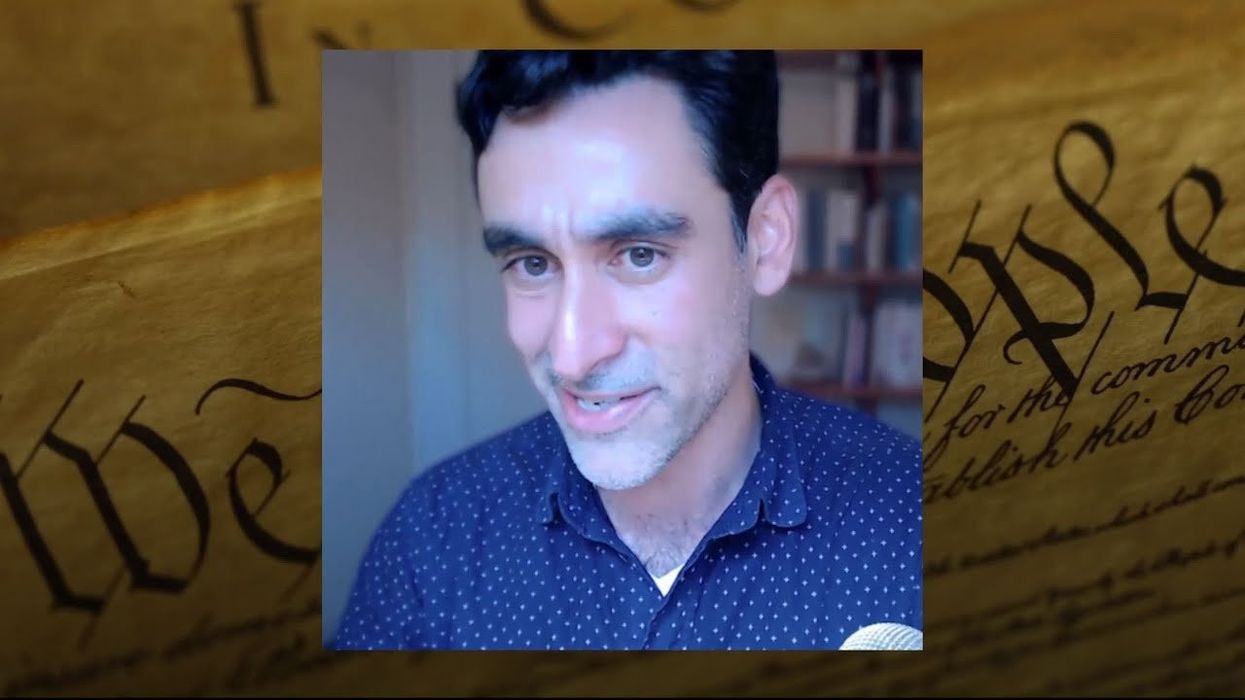The Fulcrum presents The Path Forward: Defining the Democracy Reform Movement. Scott Warren's interview series engages diverse thought leaders to elevate the conversation about building a thriving and healthy democratic republic that fulfills its potential as a national social and political game-changer. This initiative is the start of focused collaborations and dialogue led by The Bridge Alliance and The Fulcrum teams to help the movement find a path forward.
The latest interview in this series features Rahmin Sarabi, founder and Director of the American Public Trust, an organization dedicated to promoting and implementing deliberative democracy practices, such as citizen assemblies.
Deliberative democracy is a political concept that emphasizes the importance of discussion and consensus-building in the decision-making process. Its implementation, through interventions like participatory budgeting, where residents help decide how to allocate public funds, and citizen assemblies, where randomly selected residents deliberate and make policy recommendations, has gained traction in recent years. Successful examples in Brazil and several European countries have inspired pilots across the United States.
I spoke with Rahmin to explore why he sees deliberative democracy as a necessary antidote to the challenges facing our political system today. Proponents like Rahmin argue these reforms can reimagine democracy for a public that has grown deeply distrustful, while producing public decisions that are more representative. This perspective suggests that one of the central challenges in the pro-democracy sector is how we practice democracy itself.
Skeptics, however, raise both philosophical and practical concerns. Some argue that the U.S. is fundamentally governed as a republic, where elected representatives—not citizens directly—should make policy decisions. Others point to the cost and scalability of these practices. For example, convening a citizen assembly of 40 people in a municipality over several weekends is expensive and not easily replicable. This raises the question: do these processes meaningfully expand participation, or give a small group more access?
I posed these questions to Rahmin, whose responses reflected a thoughtful theory of change and a clear vision for why deliberative democracy matters. His key points included:
- Citizen assemblies aren’t the whole game:
- In a field often drawn to “silver bullet” solutions, citizen (or civic) assemblies have become the latest favorite. Popularized in places like Ireland, which held a national assembly to tackle the thorny issue of abortion, and France, which held one to define ambitious climate policies, they bring together a random assortment of citizens to debate an issue deeply and produce a recommendation—much like a jury for public policy.
This approach has been used in places like Deschutes County, Oregon (to address youth homelessness), and Fort Collins, Colorado (to consider public land use).
While acknowledging their value, Rahmin sees them as one tool within a broader collaborative governance toolkit:
“So, I think (citizen assemblies are) like the Mercedes Benz, or whatever metaphor we want. It's a powerful tool. It should be used on our toughest issues. But if we frame it as collaborative governance, there's a whole other set of tools that are more accessible in between as well.”
- The deliberation in deliberative democracy matters:
Many focus on the democracy part—the final recommendations—but Rahmin stresses the importance of the deliberation itself.
In an era of deepening affective polarization, when people struggle to engage across ideological divides, deliberative processes can create space for constructive dialogue. They allow participants to grapple with complex public problems while engaging with those who may hold opposing views—all within the context of solving a real issue.
As Rahmin articulates, “We need more voice in general. As much as we can move that voice in the direction of an informed voice, the better.”
- The broader vision is a new democracy. I find that one of the weaknesses of the deliberative democracy ecosystem is a lack of a comprehensive theory of change - what do proponents want to accomplish? How do you get from a few people helping to decide how to spend a public budget or choose a public issue to widespread systemic change?
For Rahmin, the goal isn’t incremental reform—it’s wholesale transformation:
As he expresses, “I think if this stuff just looks like incremental add-ons to the status quo - whatever liberal democracy that we've had the last 3 decades- no one's going to care….
So this is an area where, frankly, I'd love to have more allies envisioning how we can work better together, because otherwise we're preaching to the choir and having lovely Zoom calls amongst a very small community and not really reaching the public.”
Ultimately, Rahmin argues, we must offer people “a new kind of democracy.”
I came away from our conversation with a deeper understanding of the deliberative democracy sector and a clearer sense of how Rahmin sees its potential to transform—not just supplement—our democratic system.
Scott Warren is a fellow at the SNF Agora Institute at Johns Hopkins University. He is co-leading a trans-partisan effort to protect the basic parameters, rules, and institutions of the American republic. He is the co-founder of Generation Citizen, a national civics education organization.




















